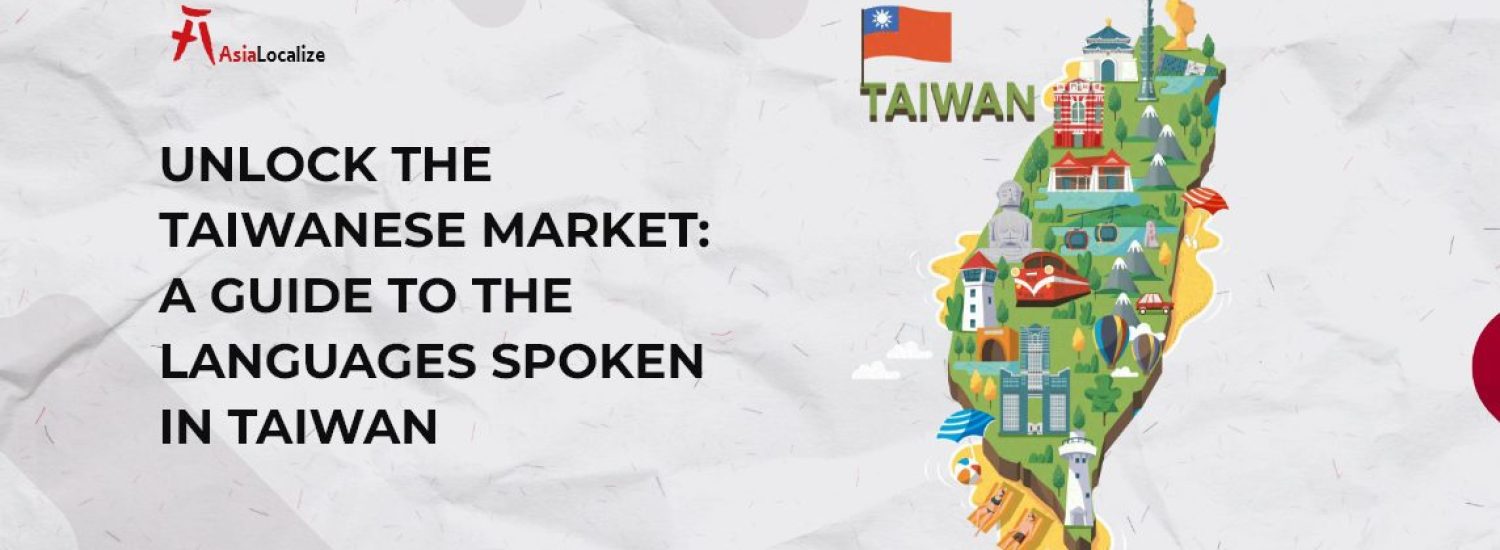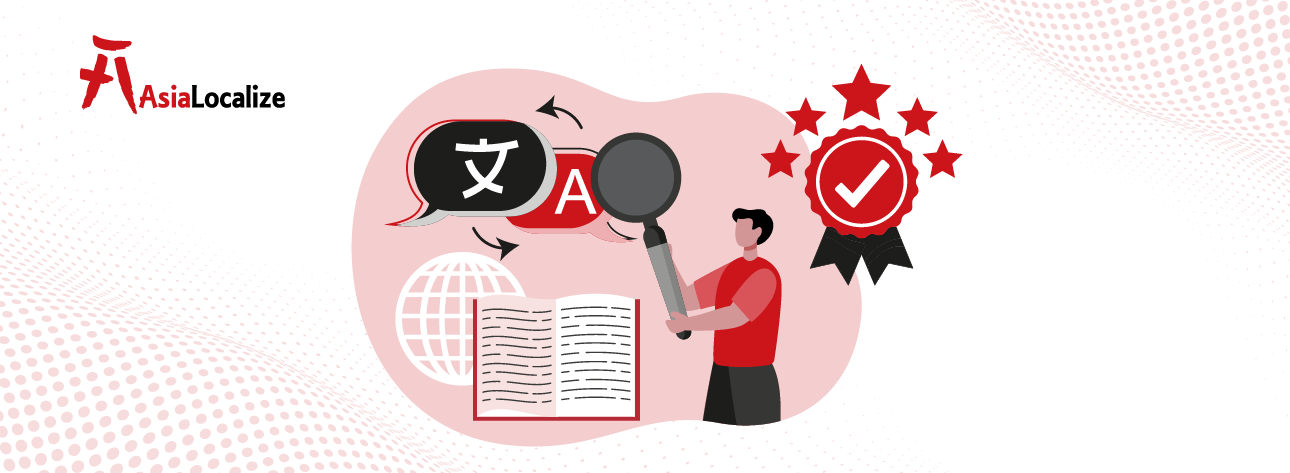Taiwan, officially known as the Republic of China, is a beacon of technological innovation and holds a strategic position in East Asia, at the crossroads of the Asian continent. This vibrant island has left a significant mark on the global stage, making it an attractive destination for businesses looking to expand.
However, successfully entering the Taiwanese market requires nuanced understanding and strategic localization, particularly in terms of language. But what are the most common languages spoken in Taiwan, and how can you decide which to use for your business?
The linguistic diversity in Taiwan presents both challenges and opportunities for international businesses. This blog will guide you through the complexities of Taiwan’s languages, helping you make informed decisions that align with your business objectives and resonate with the local market.
Languages Spoken in Taiwan – More Than You Expect!
Taiwan enjoys a diversity of tongues, and this rich diversity is the result of the distinct political Taiwanese experience.
The country has undergone a series of colonization processes throughout its history. The most influential among those colonial projects is the Japanese rule of Taiwan and the Chinese colonization of Taiwan, which altered the populations of Taiwan and the languages spoken in it.
Let’s explore together the most common of these languages!

1- Mandarin Chinese: The Official Language of Taiwan
Mandarin Chinese is the official and one of the most common languages spoken in Taiwan, thus used in all official spheres of life there. It is taught in schools, used in the media, and in all government and official dealings in Taiwan.
Mandarin Chinese is the primary language used in most formal business contexts in Taiwan, including meetings, negotiations, drafting legal contracts, and conducting financial transactions.
It is not just the official language of the government; it is also widely spoken by millions across Taiwan, the most spoken by households as you can see in the chart below:

SO, How Did it Happen That Mandarin Became so Prevalent in Taiwan?
- In the 1940s, significant numbers of Chinese nationals moved to Taiwan, escaping the political and military upheavals in mainland China.
- While blending with the indigenous populations of Taiwan, these immigrants maintained their native languages, customs, and traditions. Consequently, Mandarin has become deeply integrated into all facets of life and is now one of the national languages of Taiwan.
Therefore, if you’re looking to enter the Taiwanese market effectively, it’s essential to consider Chinese translation services to adapt your website and brand content to Taiwan’s official language.
2- Taiwanese Hokkien: The Language of Everyday Life
Taiwanese Hokkien is another one of the important languages spoken in Taiwan. Unlike its precedent, it isn’t the language of the government, not the language taught in schools, but rather the language that common people use in their everyday life.
Moreover, it’s one of the local languages that existed long before Mandarin Chinese in Taiwan, and it’s still used as the unofficial language of everyday life by most Taiwanese today, especially outside of Taipei. Therefore, it’s simply called the Taiwanese language.
Though, the interwoven nature between Mandarin and Taiwanese has run way before the entrance of the Mandarin Chinese language into Taiwanese society, as the roots of Hokkien Taiwanese touch upon the Mandarin script system.
Since Hokkien Taiwanese is the language of the people, adopting it in the translation and localization services of your brand will lead to better customer engagement, forging a deeper relationship of mutual trust with your target audience, and allowing your audience to feel truly represented.
A native speaker of the Taiwanese language on the Penghu Archipelago, one of Taiwan’s offshore islands

3- Hakka Chinese: A Distinct Cultural Language
Hakka Chinese is the traditional language of a unique ethnic group in Taiwan and is spoken by a relatively small segment of the population. Recognized officially as one of the cultural languages of Taiwan, Hakka Chinese, however, is experiencing a decline in usage according to recent research, like many other minority languages.
Despite the decreasing number of speakers, the language remains a vital part of Taiwan’s cultural heritage.
4- Formosan Languages: The Indigenous Languages of Taiwan:
The Formosan languages hold seminal importance for preserving Taiwan’s rich indigenous cultural heritage, as they represent the native tongues of the island’s indigenous peoples. Comprising around 2% of Taiwan’s population, this demographic has traditionally spoken Formosan languages for generations.
We use the term “Formosan languages” in its plural form for good reason. Rather than a single language, Formosan refers to a collection of languages, including Amis, Atayal, Bunun, Kavalan, Paiwan, Thao, and Saisiyat. Each language embodies the unique culture and history of the ethnic groups that speak it.
If you want to connect with local Taiwanese communities, adopting the Formosan languages in localization strategies could prove wise, especially if expansion goals involve targeting areas where these indigenous tongues are predominantly spoken.
Top 3 Foreign Languages Spoken in Taiwan
The globalization of the world and the unique political history of Taiwan have led Taiwan to adopt more than one foreign language in the country.
1- English
English is an important foreign language spoken in the Taiwan because of its role as lingua franca of international communication that connects the Taiwanese with the rest of the world.
In addition, it’s used heavily in Taipei. Many schools in Taipei employ it as the language of instruction, and it is used in Taipei’s MRT public transportation system.
2- Japanese
The Japanese rule over Taiwan led to the inevitable adoption of the Japanese language by many Taiwanese, which qualified it as a foreign language in the country.
Although the Japanese rule over Taiwan came to an end a long time ago, there are still many people who are fluent in the Japanese language, especially among the older generations.
3- Southeast Asian Languages
Taiwan has been the destination of many immigrants from Southeast Asian countries, which led the languages of those nations to smoothly proceed into the map of the foreign languages of Taiwan.
These languages include Vietnamese, Indonesian, and Tagalog. The immigrants of those countries attempt to preserve their cultural and linguistic heritage by speaking their native languages, as well as teaching them to their future generations.
Conclusion
If you are still having trouble choosing the suitable language that aids your localization process into the Taiwanese market, our experts at AsiaLocalize help you make up your mind.
Our localization experts at AsiaLocalize will thoroughly study your brand; its needs and goals and walk your brand through the language that will help you forge a deep communication with the Taiwanese people.






